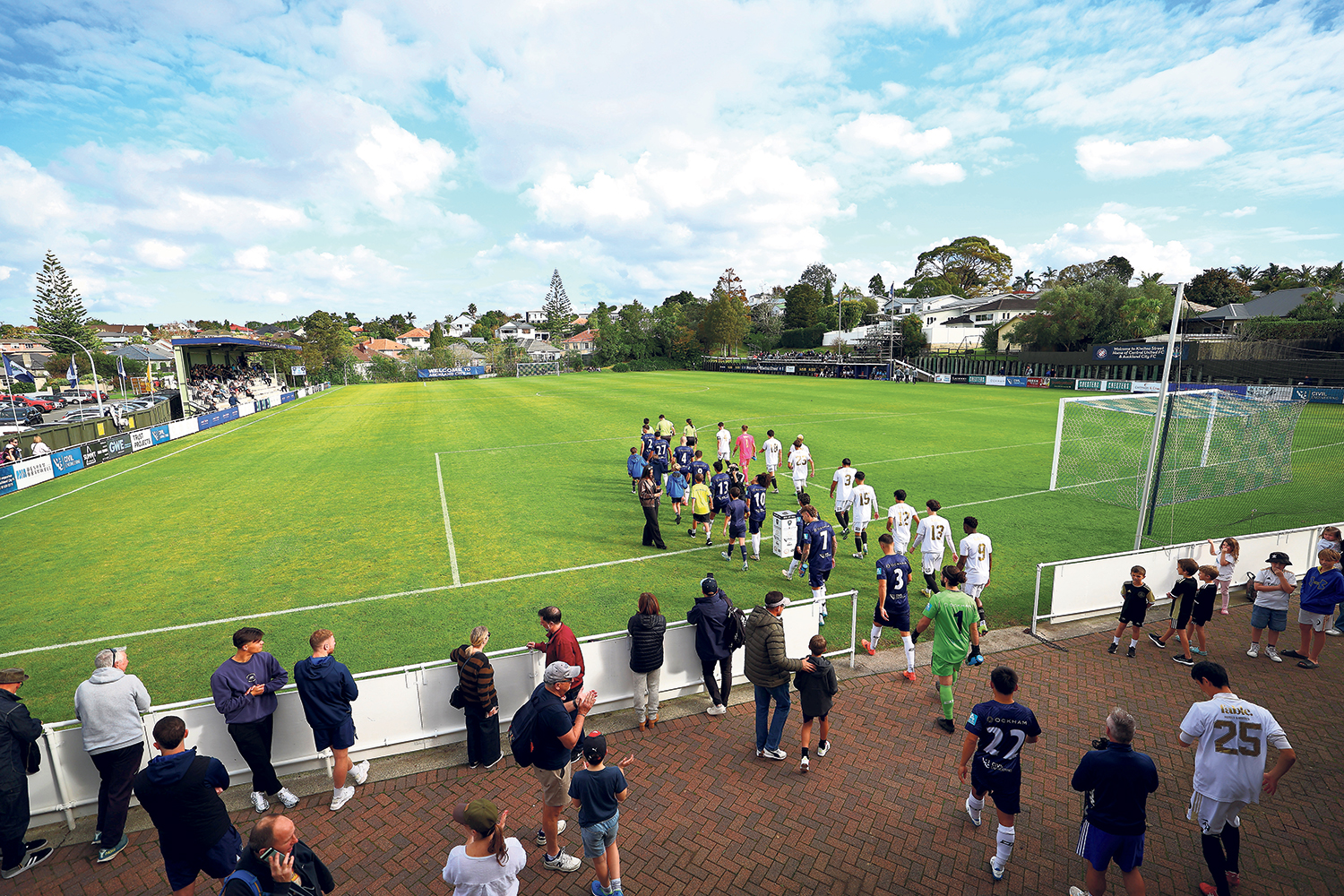Auckland City’s journey to the Club World Cup was a little more circuitous than planned. The New Zealand champions’ semi-professional players are no strangers to long-haul travel; playing in the Oceania Champions League has always required regular trips to as far as Papua New Guinea.
The 12-hour flight from the North Island to San Francisco was not a problem. The issue was making the connection to reach their training facility in Tennessee.
They had to queue for immigration, wait for luggage, cross the airport, transfer luggage to their new flight, and clear customs. In 90 minutes.
“It was my first experience of American airports, and how hectic they can be,” the goalkeeper, Conor Tracey, said. They did not make the flight. Instead, their travelling party – three dozen players and staff – had to split up and seek alternative routes, changing in Washington, Houston or Philadelphia before reconvening in Chattanooga.
Those logistical headaches have done nothing to dampen the team’s enthusiasm. In many ways, it is fitting. In the couple of weeks they have spent in the United States, adjusting to the time difference and the temperature, the squad have also tried to reflect on what their presence represents.
“I’ve tried to remind them it is four years of work,” Gordon Watson, the team’s general manager, said. “It is more than 200 games. It is all the kilometres they’ve racked up in travel, they probably spend more time together than they do with their loved ones. It is all the sacrifices, getting up at 5am to go to the gym then going to work. It is all the sacrifices their families made.”
Auckland, ranked 4,928th in the world, have competed in previous iterations of this tournament more than any other team, and finished third in 2014.
This time they have been drawn in a group with Bayern Munich, Boca Juniors and Benfica. “As football fans, you look at those names with deep respect,” Watson said. “It means a lot to all of us. This is the pinnacle.” Watson is aware Auckland – effectively a “community” team, he said, up against the game’s giants – is a unique case.
Gianni Infantino, the Fifa president, has relentlessly promoted this tournament, his brainchild, as a “new era” for football, a competition to make the sport “truly, truly global”. This week he drew a parallel with the legacy of the first men’s World Cup, held in Uruguay in 1930.
In Europe those claims have been met with what might politely be described as cynicism. Competing clubs might be inclined to take it seriously, because of the chance to win £97 million in prize money.
Newsletters
Choose the newsletters you want to receive
View more
For information about how The Observer protects your data, read our Privacy Policy
“The whole world will be watching this,” Manchester City’s chairman, Khaldoon al-Mubarak said last month. “I can assure you, we’re going to give it our best shot. We’re going there to win it.”
Others have been more circumspect. The tournament has been cast in various lights, none especially flattering: a vanity project bulldozed through by Infantino; an artificial construct with all the prestige of a pre-season tour; a naked cash-grab and obvious powerplay, a Fifa attempt to sink its teeth into the lucrative club game.
Fifpro, the global players’ union, has lodged a complaint with the European Commission against Fifa essentially arguing that introducing another competition to an already “gruelling” calendar is risking the health and wellbeing of players.
The perception this is little more than a carnival of shallow self-interest has been reinforced by sluggish ticket sales – prices have been cut several times even for the opening game, featuring Lionel Messi and Inter Miami – and Fifa’s long-running travails in finding broadcast and commercial partners. In Europe, the abiding sense is that the meaningful portion of the season concluded with the Champions League final, as always.
That is not how the rest of the world sees it. Infantino and co have undoubtedly tapped into an appetite that is widespread and sincere. For teams outside Europe, the chance to share a stage with the game’s economic and sporting powerhouses is one to be relished.
In part because of the commercial opportunities it presents: special edition shirts, commemorative merchandise and social media content from clubs that rarely have access to this sort of global profile. But more important, is a chance to compete with – and maybe bloody the noses of – teams that absorb so much of football’s talent, money and attention. “We are used to our best players going to play in Europe,” Luiz Eduardo Baptista, the president of the Brazilian side Flamengo, told The Observer. “Being part of a competition where we can play against these teams is exciting.
“Maybe for European teams it is not that exciting to play against the South Americans. Maybe for Real Madrid it is an obligation. Maybe it is just another game at the end of the season. If you win: of course, you should win. But if you lose: it is ‘Shame on you’, a political disaster. Maybe for them it is just another game at the end of the season. But for our players, it is not just a game, it is the game of their lives.”
South America has long held the various forms of the Club World Cup in far higher regard than Europe: in 2012, when Chelsea competed in it, the club’s Brazilian contingent had to explain, reasonably forcefully, that it should not be seen as a mere trinket; Baptista remembers Flamengo surprising Liverpool in 2019. “I was there,” he said. “You could see Liverpool players realise they would have to leave every drop of sweat on the field.” It is telling that Brazil has seen fit to suspend its entire domestic season while the Club World Cup plays out.
That attitude applies elsewhere, too – 10,000 fans gathered at Tokyo airport to send Urawa Red Diamonds to the US; a banner urging Ésperance de Tunis to seek “glory” accompanied the Tunisian champions on their way.
They know they have been brought to the US to stoke Infantino’s ego, to secure his legacy, to help football’s powerbrokers extract as much content and money as possible. That does not mean they cannot see a prize worth winning.
European clubs might see the tournament as somehow beneath them. That just makes it more appealing to teams used to living in Europe’s long shadow.
Photograph by Phil Walter/Getty Images

